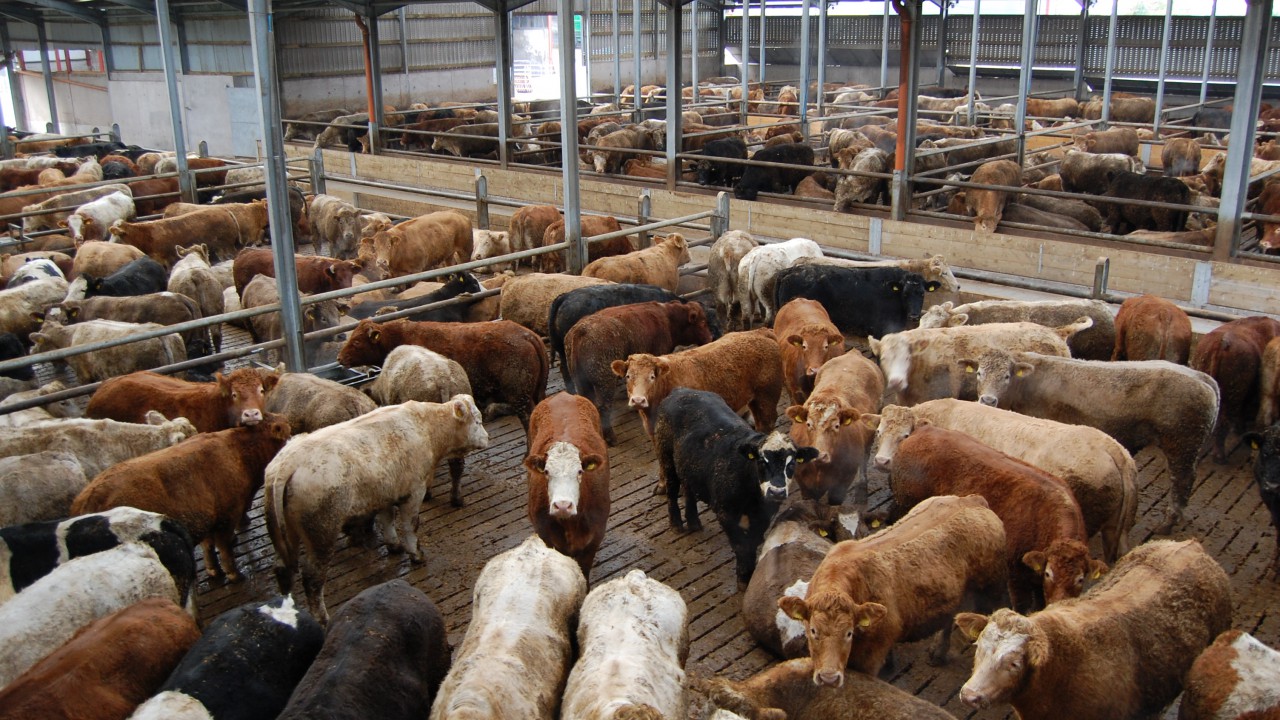Scotland’s first BSE case in a decade has come as a shock to the entire industry; however, the consensus among industry leaders is that it will only have a limited impact on the UK’s international beef trade.
The case, which has been described as an “isolated incident”, occurred in a beef animal in Aberdeenshire.
It’s understood the animal was identified as a result of routine control measures in place for fallen stock and that it did not enter the human food chain.
Farmers are being urged to speak to their vet immediately should they have concerns about their animals.
What to look out for
Bovine Spongiform Encephalopathy (BSE) is a disease which attacks the central nervous system thought to be transmitted through infected feed – however, the exact cause has never been conclusively proven.
The disease is closely related to scrapie – a brain-wasting disease in sheep.
In cattle its symptoms include:
- Aggressiveness;
- Nervousness;
- Weight loss;
- Loss of milk production; and
- Difficulty standing.
The disease is fatal, usually causing death between two weeks to six months after symptoms first show.
BSE was a major issue in the UK in the late ’80s and early ’90s, reaching a peak in 1992 when the UK hit its 100,000th confirmed case of the disease. That year more than 37,000 cases were detected.
At the time, the disease was controlled through a range of livestock, food and feed controls brought in from 1988 onwards.
In more recent times the disease has been far less common but not completely unheard of. According to the World Organisation for Animal Health, there have been six cases of the disease in the UK (not including the latest incident) since 2013 when testing was relaxed across the EU. The most recent of these occurred in Wales in 2015.
Back in line with the rest of GB
Andrew McCornick, president of National Farmers’ Union Scotland, said the outbreak was “disappointing” but not completely unexpected.
“Whilst we lose our negligible risk status, it is not unexpected to see a new case and demonstrates the efficacy of the surveillance measures in place,” he said.
“This simply brings us back in line with the rest of Great Britain, reverting back to where we were 18 months ago.
“When Scotland applied for BSE negligible risk status it was with the full knowledge that there was every possibility of a sporadic case of BSE emerging as has been the case in France and Ireland.”
Limited market impact
Meanwhile, Quality Meat Scotland chairman, Kate Rowell, who is also a farmer and qualified vet, stressed that there were no public health implications as the animal had never entered the food chain.
“The identification of this isolated case, after such a long period without any confirmed cases in Scotland, offers reassurance that the official prevention response plan and surveillance systems in place are working effectively,” she said.
The reality is that sporadic cases, such as the one confirmed this week, do occur and have also been reported in other countries.
She added that the impact was likely to be limited since Scotland will still retain its Negligible Risk status.
“The Scottish red meat industry has built a global reputation for the quality of its beef and we developed this with Controlled Risk status until 2017 when that changed to Negligible Risk status,” she said.
“Accordingly, we do not anticipate that the return to Controlled Risk status – the same status as exists in England and Wales – will have any serious impact on export market growth.”
Speak to a vet
British Veterinary Association president Simon Doherty praised the quick response of both the farmer and vet involved in identifying the case.
He urged farmers concerned about the disease to speak to their local vet.
“We are communicating regularly with our colleagues in the relevant species divisions and with the Scottish Government,” he said.
We hope the APHA will be able to provide further clarity on the disease’s origins once their investigations are complete.
“We are confident that official veterinarians in Scotland will be working alongside meat hygiene inspectors to ensure that the safety of consumers remains a priority in all abattoirs.”
‘A stark reminder’
The case does not affect Northern Ireland’s Negligible Risk status – the only other part of the UK to have been granted the higher level status. However, Ulster Farmers’ Union president Ivor Ferguson said it was still a “stark reminder” to the industry locally.
“Cases such as this one are not unprecedented and there have been a diminishing number identified in other countries in recent years, namely France and the Republic of Ireland,” he said.
“Our industry has worked hard to deliver BSE Negligible Risk status and it is reassuring that the UK’s robust and rigorous food safety controls have identified this isolated case early.”

